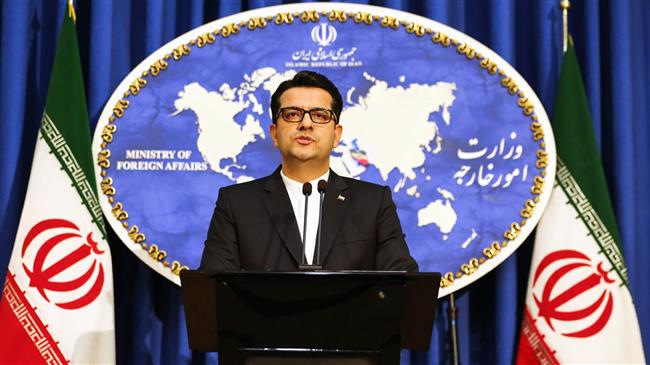Alwaght- Iran expressed concerns over the latest move by the US to test a medium-range ballistic missile, months after Washington withdrew from the Intermediate-range Nuclear Forces (INF) Treaty with Russia.
"We announce that the unilateral withdrawal of the country (the US) from the INF Treaty with Russia and carrying out several missile tests will lead to instability in the world," Iranian Foreign Ministry Spokesman Abbas Mousavi said at a press conference in the Iranian city of Tabriz on Saturday.
Iran invites the US to observe international regulations, he added, Fars news agency reported.
"It is not acceptable to us that we should witness an increasing tension and a missile and arms race in the world on a daily basis," Mousavi added.
In a statement on Thursday, the US Defense Department said it has tested a medium-range ballistic missile, the second test in four months of an offensive missile, banned under the INF.
The Pentagon added that the test took place earlier in the day from Vandenberg Air Force Base near Los Angeles, California, and the missile flew for more than 310 miles (500 km).
The test was the second of a ground-launched, nuclear-capable missile since Washington left the INF treaty. In August, the Pentagon tested a ground-launched cruise missile.
The United States formally withdrew from the landmark 1987 INF pact with Russia in August after claiming that Moscow was violating the treaty, an accusation that Russia has denied.
The treaty, negotiated by then-US President Ronald Reagan and Soviet leader Mikhail Gorbachev, banned land-based missiles with a range of between 310 and 3,400 miles (500 to 5,500 km).
Two major world powers and strategic partners, Russia and China, said on Friday the United States' recent test launch of a nuclear-capable ballistic missile clearly indicates Washington’s “malicious intention” for the demise of the landmark INF arms control treaty with Moscow.
Resolution 2231 places no ban on Iran’s missile tests
Elsewhere in the presser, the Iranian Foreign Ministry spokesperson once again rejected the "meddlesome" remarks on Iran's missile program, saying the 2015 nuclear deal, officially known as the Joint Comprehensive Plan of Action (JCPOA) signed between Tehran and major world powers, is solely addressing the Islamic Republic's nuclear program.
"What they were seeking in the JCPOA was the nuclear issue of Iran, but considering some remarks and problems, they tried to bring up the issue of the missiles too," Mousavi said.
"But, [United Nations Security Council] Resolution 2231 explicitly showed that the Islamic Republic of Iran is not barred from any missile test," he noted.
He pointed to the US withdrawal from the JCPOA and the Europeans' failure to deliver on their obligations under the deal and said it seems that they now seek to play a blame game by bringing up irrelevant issues to evade their responsibilities vis-à-vis Iran.
He noted that Iran is not concerned about such remarks which are "baseless and groundless" and said, "There is no prohibition on missile tests, particularly ballistic missiles, and Resolution 2231 explicitly mentions that Iran should not design missiles that are capable of carrying nuclear warheads."
The Iranian spokesman once again called on the three European signatories to the JCPOA -- France, Britain and Germany -- to return to their commitments under the nuclear accord.
In a letter to UN Secretary General Antonio Guterres circulated on December 4, the European signatories accused Tehran of possessing “nuclear-capable ballistic missiles,” claiming its latest missile activities are “inconsistent” with UN Resolution 2231.
UN ambassadors from France, the UK and Germany claimed that “Iran’s developments of nuclear-capable ballistic missiles” go against the resolution, calling on Tehran not to undertake any activity involving such missiles.
UN Security Council Resolution 2231 endorsed the JCPOA, which was signed in 2015 between Iran and the major world powers — also including the US, Russia, and China.
Iranian Foreign Minister Mohammad Javad Zarif later referred to a statement issued by Washington to refute the Europeans' allegations.
"Brian Hook (US Special Representative for Iran) has given our E3 JCPOA partners a timely reminder, openly admitting that missile testing is NOT prohibited in Security Council Resolution 2231," the foreign minister said in a tweet on December 6.



























